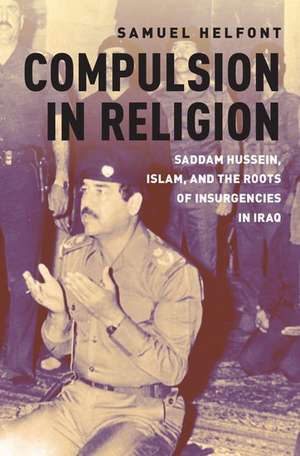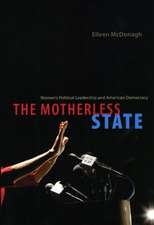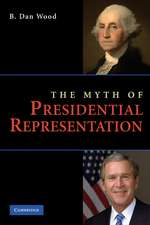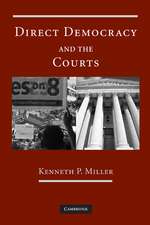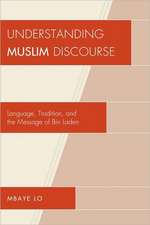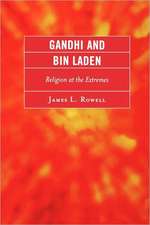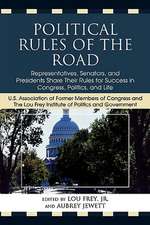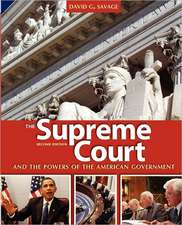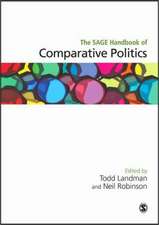Compulsion in Religion: Saddam Hussein, Islam, and the Roots of Insurgencies in Iraq
Autor Samuel Helfonten Limba Engleză Hardback – 17 mai 2018
| Toate formatele și edițiile | Preț | Express |
|---|---|---|
| Paperback (1) | 164.94 lei 10-16 zile | |
| Oxford University Press – 12 oct 2021 | 164.94 lei 10-16 zile | |
| Hardback (1) | 283.19 lei 31-37 zile | |
| Oxford University Press – 17 mai 2018 | 283.19 lei 31-37 zile |
Preț: 283.19 lei
Preț vechi: 333.09 lei
-15% Nou
54.21€ • 58.90$ • 45.56£
Carte tipărită la comandă
Livrare economică 10-16 aprilie
Specificații
ISBN-10: 0190843314
Pagini: 304
Dimensiuni: 236 x 157 x 28 mm
Greutate: 0.54 kg
Editura: Oxford University Press
Colecția OUP USA
Locul publicării:New York, United States
Descriere
Samuel Helfont draws on extensive research with Ba'thist archives to investigate the roots of the religious insurgencies that erupted in Iraq following the American-led invasion in 2003. In looking at Saddam Hussein's policies in the 1990s, many have interpreted his support for state-sponsored religion as evidence of a dramatic shift away from Arab nationalism toward political Islam. While Islam did play a greater role in the regime's symbols and Saddam's statements in the 1990s than it had in earlier decades, the regime's internal documents challenge this theory.
The "Faith Campaign" Saddam launched during this period was the culmination of a plan to use religion for political ends, begun upon his assumption of the Iraqi presidency in 1979. At this time, Saddam began constructing the institutional capacity to control and monitor Iraqi religious institutions. The resulting authoritarian structures allowed him to employ Islamic symbols and rhetoric in public policy, but in a controlled manner. Saddam ultimately promoted a Ba'thist interpretation of religion that subordinated it to Arab nationalism, rather than depicting it as an independent or primary political identity.
The point of this examination of Iraqi history, other than to correct the current understanding of Saddam Hussein's political use of religion throughout his presidency, is to examine how Saddam's controlled use of religion was dismantled during the US-Iraq war, and consequently set free extremists that were suppressed under his regime. When the American-led invasion destroyed the regime's authoritarian structures, it unwittingly unhinged the forces that these structures were designed to contain, creating an atmosphere infused with religion, but lacking the checks provided by the former regime. Groups such as the Sadrists, al-Qaida, and eventually the Islamic State emerged out of this context to unleash the insurgencies that have plagued post-2003 Iraq.
Recenzii
Samuel Helfont has convincingly clarified a number of key factors that eluded most Americans two decades ago. That alone makes Compulsion in Religion essential reading for anyone wishing to understand recent Iraqi and American history
Compulsion in Religion was a timely contribution. It provides a nuanced understanding of Saddam's religious policies, based on the regime's internal documents, and sheds light on some of the unintended consequences of the 2003 war.
Helfont gives us a compelling picture of religious life under Saddam. This book can serve as an invaluable resource for anyone who wants to understand Iraq and its sectarian conflicts better. The Western media and politicians love to paint Iraq in single colors, focusing on corruption or the constant violence. Helfont gives us a nuanced and rich view of the Iraqi religious landscape.
Compulsion in Religion is the definitive account of the religious policies of Saddam's regime and mosque-state relations in Ba'thist Iraq. It will be of interest to scholars of Iraq, religion, comparative politics, and general readers searching for an antidote to inaccurate information on the subject.
This work is indispensable for scholars of religion and authoritarianism as a hypothesis-generating case study and is a welcome contribution to the field of religion and politics in particular.
[S]cholars have been hard at work refining and challenging conventional narratives regarding Ba'thist Iraq. Compulsion in Religion forms a significant contribution to this more general effort. ... [It] will be of great interest to students of Iraqi history and modern Iraqi politics alike.
[A] fascinating new book.
Notă biografică
Samuel Helfont is Lecturer in International Relations at the University of Pennsylvania and Senior Fellow at the Foreign Policy Research Institute in Philadelphia.
